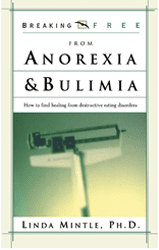Guest blogger Dr. Rita Hancock, Board-certified Pain Management, treats people holistically. Author of Radical Well-Being and The Eden Diet, you can find out more about her at her website, www.RitaHancock.com
 As a pain management specialist, I see patients on a daily basis who have pain conditions like fibromyalgia, arthritis, disc problems, muscle spasms, jaw pain, migraine headaches, and others.
As a pain management specialist, I see patients on a daily basis who have pain conditions like fibromyalgia, arthritis, disc problems, muscle spasms, jaw pain, migraine headaches, and others.
In order to figure out who needs what kind of treatment, I talk with my patients extensively, examine them thoroughly, and order all the necessary tests. However, sometimes, no obvious diagnosis emerges and I’m left scratching my head about what’s causing the patient’s pain.
Especially in light of the high rates of addiction and prescription narcotic abuse, I try very, very hard to discern who among my patients needs narcotic pain medicines and who needs emotional or even spiritual support, primarily.
One of the main things I consider is how the patient’s emotional state—how much stress, anxiety, and/or depression that person is experiencing—can affect his or her perception of pain. Maybe the tests came back negative because the patient has only a little muscle spasm, and it just feels like excruciating pain to the patient because of other things that are going on at home or at work.
Think about it! There’s a difference between pain and suffering. Pain is the physical aspect. It’s when your nerve endings fire and tell your brain, “Hot stove! Quick—Pull your finger away!” In contrast, suffering is your emotional reaction to that pain. “AAAAAaaaaarrrrrrgghhhhh!!!!!!” [piercing, exaggerated, melodramatic screaming and crying….]. “My life is ruined now that my finger is burned! Where’s that bottle of pills?”
If you’re an anxious or depressed person who was abused, neglected, or abandoned as a child, you may have fewer coping skills as an adult to deal with stress. As a result, you might experience physical pain more profoundly [or dramatically] than the next person, and you might even more inclined than average to reach for those pills.
In addition, understand that physical pain can serve as a distraction from your emotional issues. It feels less personal to fixate on, “My back hurts” instead of, “My life feels completely out of control and I’m scared!” Your brain can play tricks on you—making you fixate on pain as being a bigger problem than it is. That way, you don’t have to deal with more emotionally threatening thoughts.
In case I described you, don’t worry. There’s a lot of hope for you to feel better. Through a combined approach that includes not only the proper medicine but also counseling and prayer (as well as extending forgiveness to those who hurt you in the past), you can achieve greater control and freedom from emotionally-induced pain.
That way, you can snuff out your pain out at its emotional root cause—without having to rely on addictive narcotics or expensive, painful, time-consuming medical tests prescribed by pain management doctors like me.


